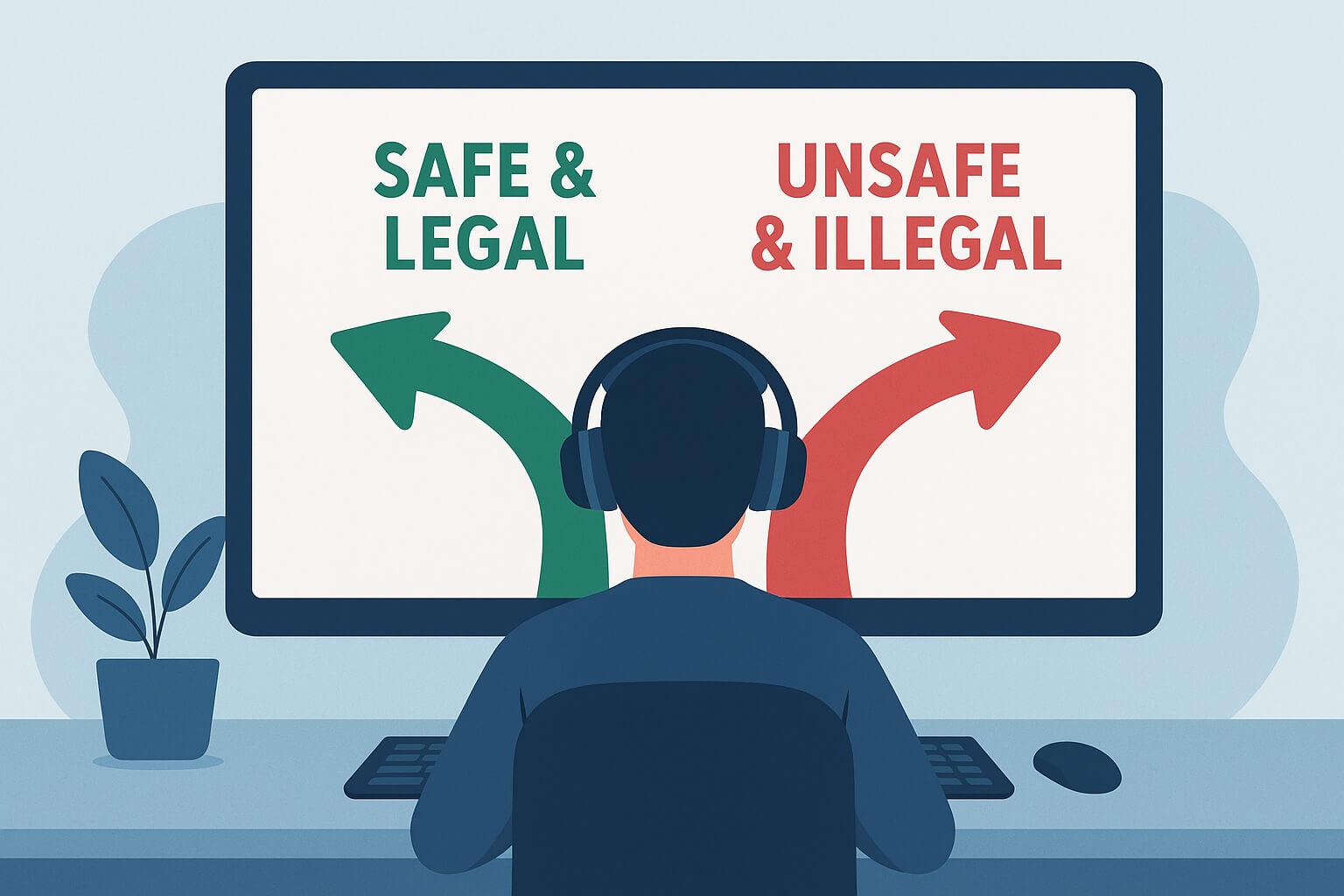August 12, 2025

Downloading music for free can feel like a digital treasure hunt—but that doesn’t mean the coast is clear. While legal options exist, many hazards lurk behind seemingly innocent download buttons. Here's how to stay safe, informed, and respectful of copyright.
The safest downloads come from platforms that clearly communicate user rights, such as public domain, Creative Commons, or artist-sanctioned releases. Sites like Free Music Archive and Jamendo showcase licensing terms upfront—meaning you know what you can legally do with a song. A helpful primer is available in this guide: How to Spot Legal Music Download Sites.
Sketchy sites often litter pages with multiple "Download" buttons, hoping you’ll click the wrong one and trigger malware or adware. The actual music is often buried under pop-ups and redirects. Reddit users emphasize this risk:
"Fake media files could actually be malware, or exploit vulnerabilities in your player."
— in discussions about torrent risks (Reddit)
Modern scams also involve deceptive messages claiming your IP address is being targeted—clicking such links puts you at risk even further. (Reddit)
Sites offering full albums for free without explicit permissions rarely have moral or technical safeguards in place. Source analysis shows that warez and pirate sites are significantly more likely to carry malware—infectivity rates can be 7.1% vs. 0.4% on random non-pirate domains. (Wikipedia)
Genuine music downloads use standard formats like .mp3, .wav, or .flac. If a site tries to deliver a .exe, .scr, or oddly-size .zip file—and especially if you’re prompted to install something extra—this is a major red flag. Multiple sources warn that these installers can install spyware, browser hijackers, or worse. (Microsoft Q&A, Technology Basics)
Security isn’t just about avoiding sketchy sites—it’s also about safeguarding your system:
Downloading copyrighted content without permission isn’t a harmless shortcut; it can have serious consequences. In a real legal case, a user was fined $22,500 for downloading just 30 songs he didn't own, and the court rejected his "try-before-you-buy" defense. (Wikipedia)
Sites lacking licensing or artist approval can expose users to legal risks, ransomware attempts, or phishing scams—something to keep in mind before clicking download. (WIRED)
Sometimes the simplest way to avoid a sketchy site is to ask people who’ve already done the testing. Forums like Reddit’s r/WeAreTheMusicMakers and Gearspace are packed with real-world experiences and safe recommendations.
One user shared how files pretending to be real music ended up containing remote access malware, turning their PC into a botnet node. (Reddit)
Here’s a wrap-up of the most important tips:
Stay up to date with the latest tips, expert insights, product reviews, and step-by-step guides to help you grow, create, and succeed—no matter your industry or passion.